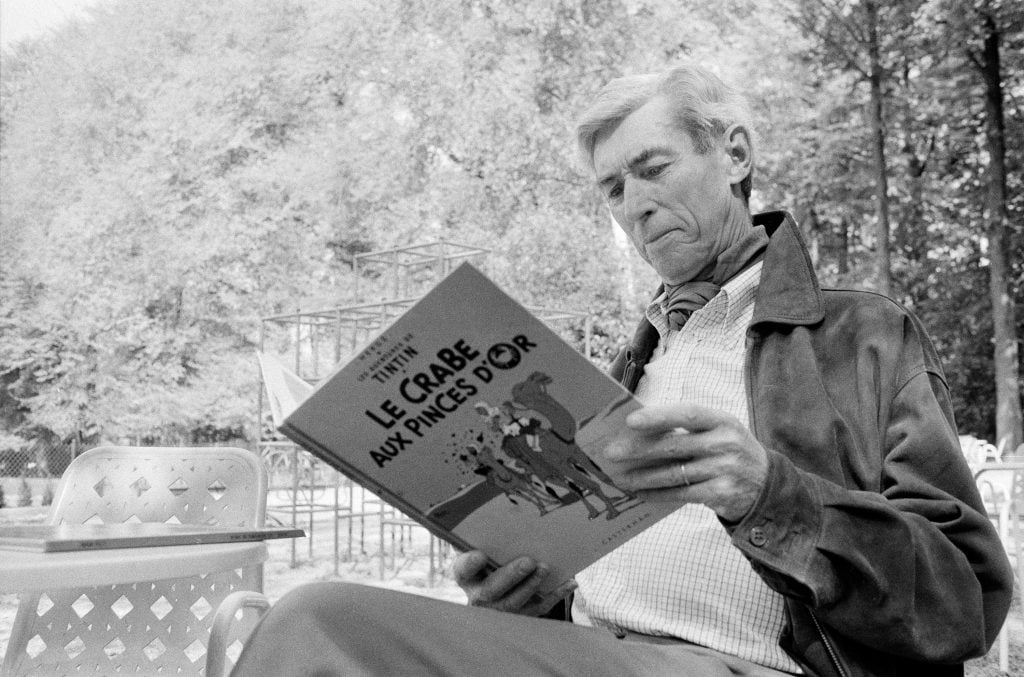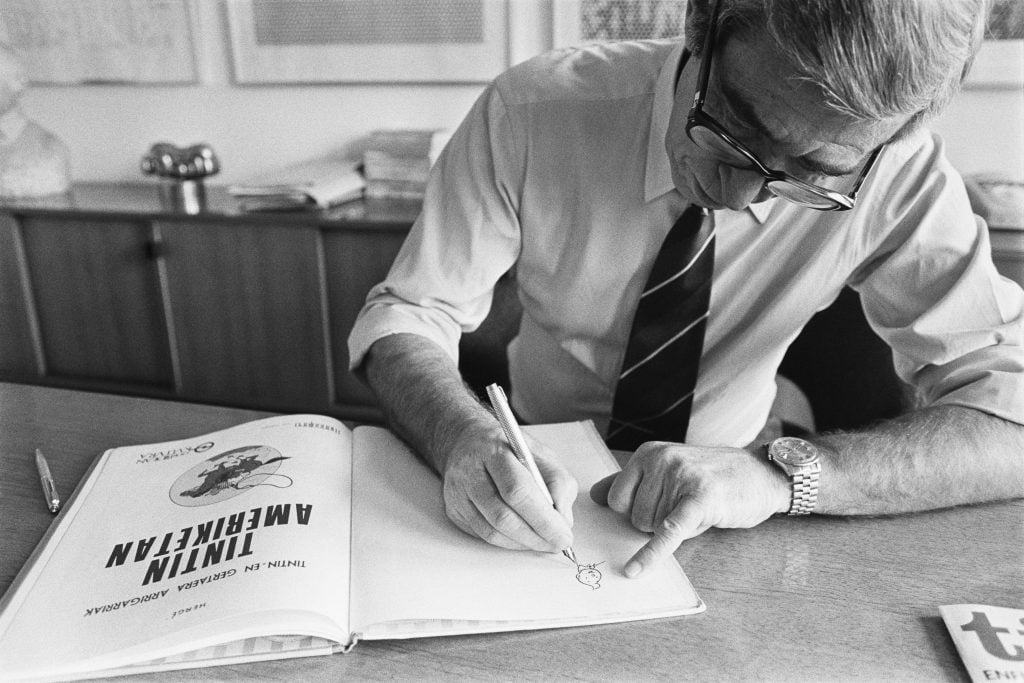Law & Politics
French Court Rules Against Artist in Legal Battle Over Tintin Parodies
Xavier Marabout initially triumphed in a regional court in 2021, but has lost in higher court following an appeal.

Xavier Marabout initially triumphed in a regional court in 2021, but has lost in higher court following an appeal.

Adam Schrader

A French appeals court has ruled against an artist who claimed parody rights to recontextualize the beloved comic book character Tintin and others from the series “The Adventures of Tintin.”
Belgian company Tintinimaginatio filed a lawsuit against artist Xavier Marabout in French court over his artworks that reimagine the character created by the Belgian cartoonist Georges Remi under the pen name Hergé in 1929. Marabout, who has been creating work as a parodist since 2004, has become known for his pieces staging Tintin in scenes inspired by Edward Hopper paintings, according to court documents translated from French.
The artist Xavier Marabout takes Edward Hopper paintings and places Tintin in them. Often (not always) with a pin-up girl. pic.twitter.com/6CGYq7kPvV
— Peter Griffin isn’t spending much time here (@zigzackly) September 11, 2021
Marabout’s work has been seen publicly since 2014 at various exhibitions, including one titled “Tintintamarre.” The company learned about a sale of the artist’s paintings held online in 2015 that included “unauthorized adaptations of various elements” extracted from Hergé’s work and sent him a formal notice requesting he withdraw his work from sale.
Marabout responded, claiming that his work didn’t infringe on Hergé’s copyright, managed by Tintinimaginatio, because his works were parodies. The company took the dispute to the Rennes Regional Court in 2017, seeking a court order prohibiting Marabout from making any new works rooted in “The Adventures of Tintin” series and restitution for damages suffered.
In 2021, the regional court sided with Marabout and dismissed the lawsuit, ordering the company to pay him €10,000 for the “denigration” he suffered and another €20,000 for court and legal fees.
The regional court had found that the parody exception to French copyright law had applied because the works could immediately be identified as being by Marabout and were created with “humorous intention and critical aim.”
“The humorous effect is established by the reversal of the situations in which Tintin is usually portrayed,” Marabout argued in legal documents. It is also not the first time Tintin has been recontextualized: in 1980, Jan Bucquoy wrote an erotic parody comic strip titled “The Sex Life of Tintin.”

Belgian cartoonist Georges Prosper Remi, aka Hergé, at home in Brussels. Photo: Jacques Pavlovsky/Sygma via Getty Images.
But Tintinimaginatio appealed in October 2023, stating that the use of “sexy women” distorts Hergé’s work and that the lower court applied an “excessively broad” interpretation of “humorous intent,” among other legal arguments.
The higher court agreed with Tintinimaginatio, finding the purported parodies unfunny infringements of Hergé’s copyright and accusing him of attempting to “abuse” the legal exception of parody by making dozens of works ripping off “The Adventures of Tintin.” The fact that Marabout introduces elements such as a tattoo on Tintin or portraying the character Dupond smoking “can’t be considered humorous,” the court ruled.
Marabout had argued that his works were transformative to create his own singular universe. But the court said that, under French law, doing so still requires the agreement of the author of the original work.
“[Marabout] wants the viewer to reflect on a grown-up Tintin, confronted with the difficulties of the human condition,” the court said. “In so doing, while he shares his intimate motivation with us, it is not a subject of general interest.”
Speaking to the broadcaster France 3 after the decision, Marabout said: “In parody, the whole difficulty is finding the right balance between excess and respect. I thought I was fine with this balance,” he said.
He added that the court determined he should have asked for permission to parody the work, but that the whole point of parody is that he shouldn’t have to do so. “I am criticized for riding on the notoriety of Hopper and Hergé,” he said. “In contemporary art, a lot of pop culture artists have revisited the works. If I am condemned for this, we condemn an entire movement in contemporary art.”
In a post on Instagram, Marabout stated that he has removed images of his Tintin works from online platforms.
The appeals court decision could yet be overturned by the judges of the Court of Cassation, and Marabout said he intends to appeal to the top court “to defend freedom of expression and the notion of parody.”